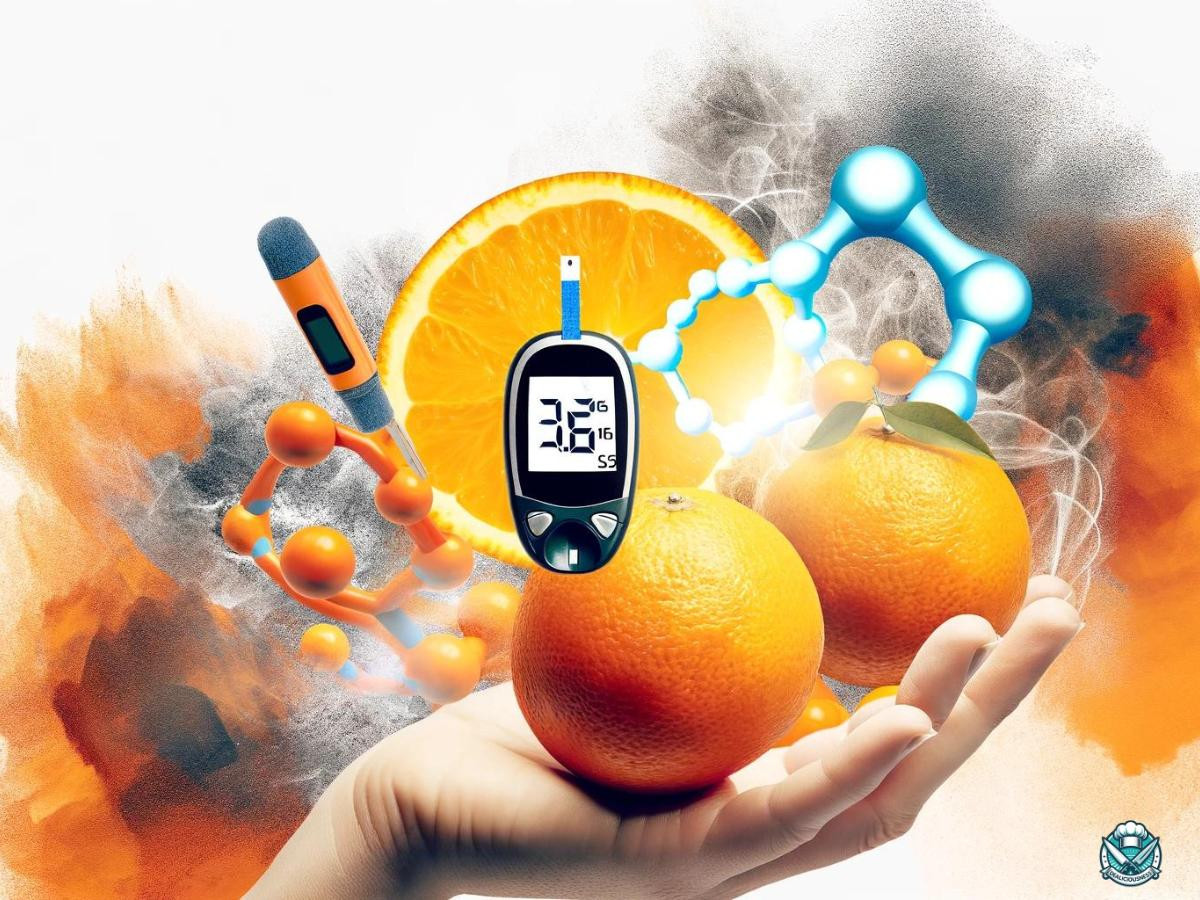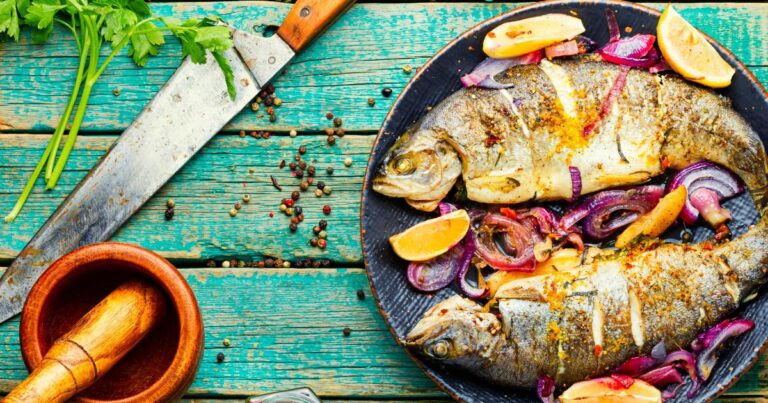7 Reasons We Crave Orange Juice: Sweet Orange Food Cravings
A craving for citrus fruit has a deeper meaning than it seems on the surface. So, why am I craving oranges? We experience food cravings when our body lacks specific vitamins or has vitamin and mineral deficiencies. When we find the body craving orange juice and citrus, it could be a way of telling you it’s starting to fight off an infection or possibly something much worse. Let’s break down seven reasons behind orange juice cravings!

Have you ever found yourself wandering to the kitchen, opening the fridge, and reaching for that bright, zesty orange or pouring a glass of orange juice without knowing why?
Well, you’re not alone. I’ve been there more times than I can count, especially after long days in the kitchen. It’s almost like my body has this inner compass pointing directly to oranges whenever it feels out of whack.
You might think it’s just a simple citrus craving, but I’ve learned there’s often more to the story. From my years of juggling roles as an executive chef, a health enthusiast, and a dad to two little girls who are my biggest fans (and critics), I’ve uncovered that our citrus cravings, especially for something as specific as oranges or orange juice, can be our body’s quirky way of sending us messages.
It’s fascinating. Whether it’s a nudge about needing a hydration boost, a vitamin C top-up in your morning turmeric ginger shots, or just seeking comfort in the familiar tangy-sweet aroma that reminds me of summer days and family gatherings, there’s usually a reason behind the craving.
Table of Contents
Why Am I Craving Oranges?

That’s what we’re here to find out. These citrus wonders are not just about their good looks or ability to spruce up a dish. They pack a punch of health benefits and are often what our bodies crave when missing out on something.
Let’s peel back the layers (pun intended) and explore the juicy details behind our orange cravings.
1. Vitamin C Requirement

When your body whispers (or sometimes shouts) for an orange, it’s often longing for a good old-fashioned Vitamin C boost. This powerhouse nutrient is not just about warding off the common cold; it’s a fundamental building block for overall health, supporting everything from immune function to glowing skin.
Immune System Champion: Vitamin C is like your body’s personal bodyguard, keeping you in fighting form against invaders like viruses and bacteria, especially during those chilly months when the sniffles seem just around the corner.
Beauty from Within: Beyond its immune-boosting prowess, Vitamin C plays a crucial role in collagen production. This means healthier skin, stronger nails, and shinier hair. It’s like a beauty treatment from the inside out.
Iron Absorption Boost: For those of us who find it challenging to keep our iron levels in check, Vitamin C comes to the rescue by improving our body’s ability to absorb iron from plant-based foods. This is particularly close to my heart, considering my keen interest in creating balanced, nutritious meals that cater to all dietary needs.
Chef’s Quick Vitamin C Fix:
Here’s a simple, refreshing recipe that I love whipping up, either as a start to my day or as a mid-afternoon pick-me-up:
Orange and Strawberry Citrus Salad. Just slice up some fresh oranges and strawberries, toss them together in a bowl, sprinkle a dash of fresh mint for an extra zing, and voila! You’ve got yourself a bowl full of Vitamin C goodness. It’s a hit at home and a sneaky way to excite my girls about fruits.
2. Hydration

Ever feel like no matter how much water you drink, you’re still parched? Sometimes, your body craves a juicier, more flavorful form of hydration. Enter the humble orange. With its high water content, craving an orange might be your body’s way of saying, “Hey, I need a little hydration boost here!”
Nature’s Sports Drink: Oranges are about 87% water and packed with potassium, making them nature’s answer to those sugary sports drinks. After a long soccer match or a day running around with my kids at the beach, nothing hits the spot quite like a cold, juicy orange.
Refreshing and Rehydrating: The natural sugars in oranges and most citrus foods provide a quick energy boost, while their fluid content helps quench thirst more effectively than a glass of water sometimes can.
Hydration Tip:
Instead of reaching for a soda or a commercial fruit drink, why not add fresh orange slices to your water? It’s a trick I use to stay hydrated throughout the day, especially when I’m in the kitchen for long hours.
For those extra hot days or after a workout, blend some orange slices with some ice for a homemade slushie. It’s a fun, healthy treat that my daughters absolutely love, and it’s a fantastic way to keep everyone hydrated and happy.
3. Blood Sugar Levels

Craving an orange or a splash of orange juice could be your body’s way of hinting at its need for a quick, natural sugar lift. Unlike the refined sugars in processed snacks, the sugars in oranges come bundled with fiber, vitamins, and minerals, making them a smarter choice for a quick energy boost.
This is particularly close to my heart, considering my family’s history with diabetes and the constant quest for balancing delicious meals with healthy living.
Natural Sugars for Stable Energy: The natural fructose in oranges provides a quick source of energy, but thanks to the fruit’s fiber, it’s released into your bloodstream at a steadier pace, helping avoid those all-too-familiar energy spikes and crashes.
Diabetes-Friendly Snacking: For those managing diabetes, like some of my family members, the fiber in oranges can help regulate blood sugar levels, making them a safer, tasty snack option.
Quick Snack Idea:
One of my go-to snacks is a small bowl of fresh orange segments sprinkled with a dash of cinnamon. It satisfies those sugar cravings, and the cinnamon adds an extra layer of flavor and can help improve insulin sensitivity with healthy gut bacteria. It’s a quick, simple snack that’s both delicious and nutritious.
Pro Tip:
While oranges are a fantastic way to satisfy a sweet craving healthily, consuming them in moderation is important, especially if you’re watching your blood sugar levels. Pairing an orange with a handful of nuts, a slice of cheese, or some leafy green vegetables can help further slow the absorption of sugar, making for a balanced, satisfying snack.
4. Electrolyte Balance

Craving an orange might be your body’s playful way of signaling it’s time to rebalance those crucial electrolytes. Electrolytes, including potassium, magnesium, and sodium, are vital for your body’s hydration, nerve function, and muscle health.
Oranges, a good source of potassium, fit perfectly into this puzzle, especially after an intense game of soccer or during those long summer days spent outdoors.
Potassium Power: Oranges are a natural, tasty source of potassium, which plays a key role in maintaining electrolyte balance, regulating heart function, and ensuring proper muscle contractions. After a sweaty session on the soccer field or a day chasing after my kids at the beach, snacking on an orange is my go-to solution for a quick electrolyte boost.
Muscle Function and Recovery: The potassium in oranges helps prevent muscle cramps and supports recovery, making it an essential part of my post-workout routine.
Hydration Plus Electrolyte Tip:
To make a refreshing post-exercise drink that beats any commercial sports drink, squeeze fresh orange juice into a glass of coconut water. This combo packs a hydrating punch and replenishes electrolytes without the added sugars and artificial ingredients in many sports drinks. It’s a natural, refreshing choice that keeps you and your muscles happy.
Chef’s Note:
Incorporating a variety of fruits and vegetables into your diet is key to maintaining a healthy electrolyte balance. While oranges are fantastic, remember other potassium-rich foods like bananas, sweet potatoes, and spinach. A colorful, diverse diet provides a broad spectrum of nutrients, including those all-important electrolytes.
So, if you find yourself craving citrus, consider it a sign that your body might need electrolyte rebalancing. Listening to these cravings and responding with natural, whole-food choices is a simple yet effective way to keep your body functioning at its best.
5. Emotional Eating

Sometimes, our orange juice craving isn’t just about the physical benefits; they’re tied to our emotions and memories. The taste, smell, and even orange peeling can evoke nostalgia or provide comfort during stressful times, no matter your food preferences.
Sensory Experience: The vibrant color, the refreshing aroma, and the burst of flavor from an orange can lift the spirits and offer a momentary escape. It’s reminiscent of sunny days, laughter with my daughters, and the lively conversations around my family’s dinner table.
Comfort Food: For many, including myself, oranges can be comfort food. They’re a healthy, guilt-free option when seeking emotional solace in our diet. Plus, peeling an orange, segment by segment, can be a mindful, therapeutic process.
Memory Lane Recipe:
One of my favorite ways to honor these emotional connections is by preparing a simple yet special dish: Orange and Fennel Salad with a Citrus Vinaigrette. This salad, dressed in a homemade orange juice-based vinaigrette, combines the sweetness of oranges with the crispness of fennel. It’s a dish that always takes me back to summer dinners with my huge Sicilian family.
Emotional Wellness Tip:
Embrace these cravings and the emotions they bring up. Preparing a dish that features oranges can be a beautiful way to reconnect with happy memories or to create new ones. Food is not just fuel; it’s a way to celebrate life, love, and our connections.
6. Seasonal Cravings

Our bodies are incredibly attuned to the rhythms of nature, and sometimes, a craving for oranges reflects the seasons. Oranges, with their peak season in the colder months, offer a burst of sunshine when we need it most.
Living east on Long Island, where the seasons paint the landscape in broad strokes of change, I’ve come to appreciate the importance of eating seasonally for the palate and the body.
Nature’s Calendar: Craving oranges during their peak season can be your body’s natural response to what’s available and nutritious. It’s as if your body knows when these nutrients are most abundant and signals you to take advantage.
Flavor at Its Best: There’s no denying that fruits, including oranges, taste best when they’re in season. They’re juicier, sweeter, and more flavorful, making them irresistible. Nature says, “Eat this now; it’s good for you.”
Seasonal Eating Tip:
Take advantage of the seasons and incorporate a variety of fruits and vegetables into your diet throughout the year. Visit local farmers’ markets to discover the freshest options.
Not only does this support local farmers, but it also ensures you get the most flavor and nutrition from your food. Plus, it’s a great activity for the kids, teaching them about where their food comes from and the growth cycle.
Chef’s Insight:
Seasonal eating isn’t just about enjoying foods at their peak; it’s a practice of mindfulness and connection to our environment. It encourages a varied diet, key to getting a wide range of nutrients. Plus, it adds an element of anticipation and appreciation for food that can be lost in today’s world of year-round availability.
If you’re craving oranges or any other citrus fruits at a certain time of year, it might be more than just a whim. It could be a deep-rooted instinct, pushing you toward the nutrients your body needs when it needs them most. Embracing these seasonal cravings can enrich your diet, your health, and your connection to the natural world.
7. Nutritional Deficiencies

Sometimes, the body’s craving for oranges goes beyond just a love for their taste or a seasonal preference. It can be a subtle hint of nutrient deficiencies or that your body lacks certain nutrients. Oranges are nutritional powerhouses packed with more than just vitamin C. They offer a range of essential vitamins and minerals your body might miss.
Fiber Fulfillment: Oranges are a good source of dietary fiber, which is essential for digestive health. A craving for oranges could indicate your body’s need for more fiber to keep things moving smoothly.
Antioxidants Ahoy: Beyond vitamin C, oranges are rich in antioxidants like flavonoids, which protect your body from oxidative stress and inflammation. If you’re feeling run-down or under the weather, your body might seek an antioxidant boost.
Thiamine and Folate: These B vitamins found in oranges support energy metabolism and cell health. A craving might signal a need for these essential nutrients, especially if your diet needs more variety.
Nutrient-Dense Snack Idea:
Try eating oranges with a handful of almonds for a nutrient-packed treat that addresses a range of dietary needs. The healthy fats in the almonds slow down the absorption of sugar, making for a balanced snack for gut health. Plus, the added crunch is a nice contrast to the juicy orange segments.
Proactive Nutrition:
Paying attention to cravings and understanding what they might mean can be a proactive approach to nutrition. Instead of dismissing cravings as mere whims, see them as clues your body gives you about its needs. Incorporating various foods into your diet is key to meeting these nutritional needs.
One Juicy Conclusion

With all the pieces of the puzzle laid out, from the vitamin-packed power of oranges to their role in hydration, blood sugar regulation, electrolyte balance, emotional comfort, seasonal cravings, and addressing nutritional deficiencies, it’s clear that our bodies are incredibly wise. They nudge us towards what we need, often in the form of cravings that, at first glance, might seem like mere whims but are cues worth paying attention to.
Embracing Wholesome Choices
The journey towards understanding our cravings, especially for something as nutritious as oranges, underscores the importance of tuning into our bodies signals. It reminds us of the beauty of nature’s bounty and the profound impact of simple, wholesome choices on our health and well-being.
A Parting Slice of Advice
Remember, while listening to your cravings and considering what they might tell you is important, balance and moderation are key. Enjoy that juicy orange, savor each segment, and let it be a reminder of the simple joys and vibrant health that come from eating foods that are as nourishing as they are delicious.
And so, whether you’re reaching for an orange to quench a thirst, healthily satisfy a sweet tooth, replenish after a workout, lift your mood, reminisce about cherished memories, embrace the season, or address a nutritional gap, know that you’re doing something good for your body.
Here’s to enjoying the zesty delights of oranges and all the wonderful benefits they bring into our lives, one juicy bite at a time. Cheers to health, happiness, and the endless wisdom of our cravings!
FAQ and Additional Information
Are oranges a pregnancy craving?
Yes, oranges can be a common pregnancy craving. This craving is often attributed to the body’s increased need for Vitamin C, which is vital for the health of both the mother and the developing baby. Vitamin C helps absorb iron, a crucial mineral during pregnancy and supports the immune system.
Additionally, the natural sugars in oranges can satisfy sweet cravings, while their high water content helps meet the increased hydration needs of pregnant women. The refreshing taste and smell of oranges help alleviate morning sickness for some.
Craving Orange Juice Before Period
Craving orange juice before your period is a common experience linked to the body’s natural changes in hormone levels and nutritional needs during the menstrual cycle. Before menstruation, fluctuations in estrogen and progesterone can affect blood sugar levels and hydration status, leading to cravings for sweet and hydrating foods like orange juice. Orange juice, rich in Vitamin C, can also help the body absorb iron more efficiently, countering the iron loss during menstruation.
Furthermore, the potassium in orange juice can help reduce bloating and water retention, common premenstrual symptoms. This craving is your body’s way of signaling for nutrients that support energy levels, hydration, and overall well-being during this cycle phase.







